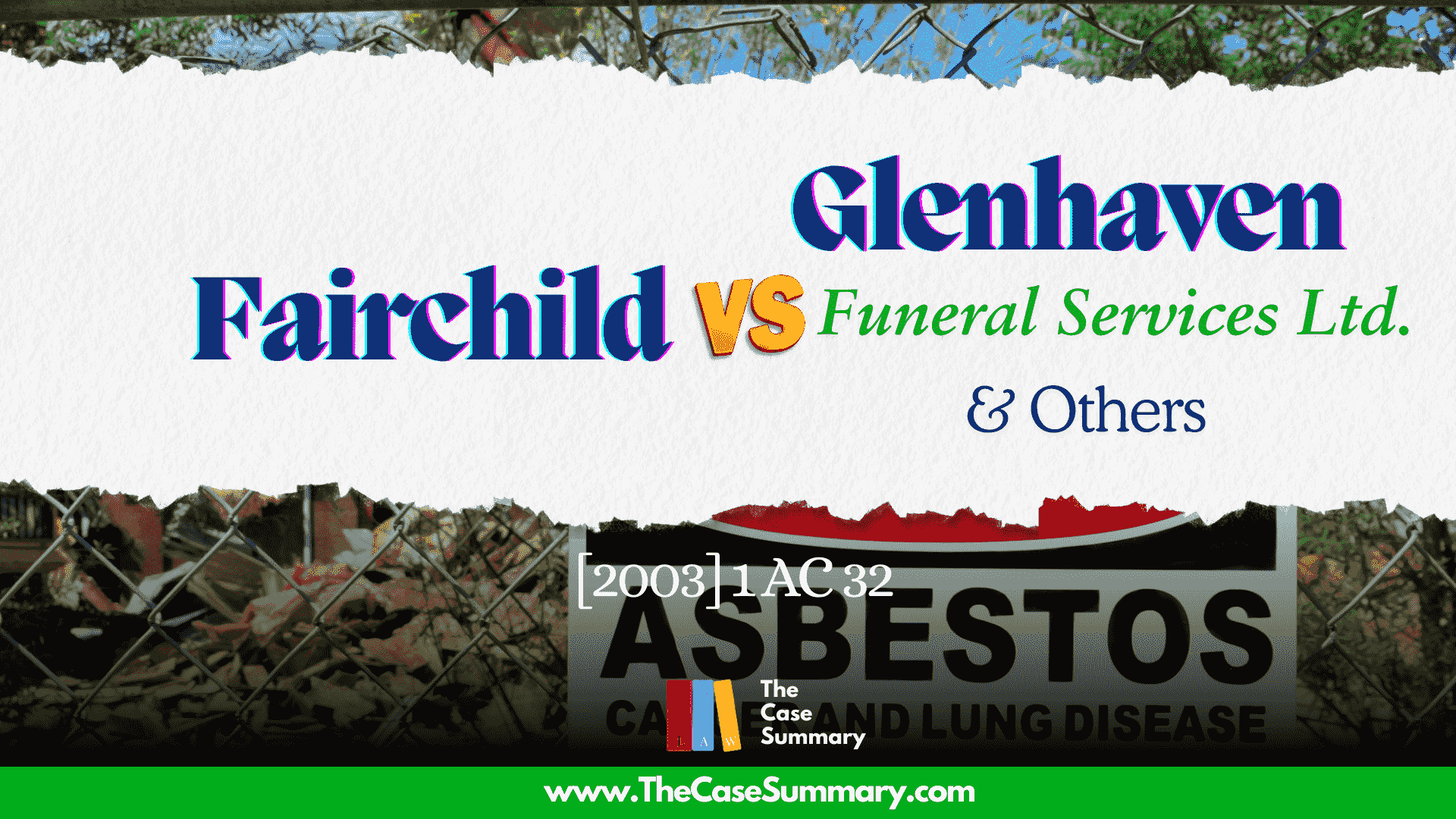Fairchild v Glenhaven Funeral Services Ltd and others
Reference : [2003] 1 AC 32
Jurisdiction : England
Plaintiff : Fairchild
Defendant : Glenhaven Funeral Services Ltd.
Facts :
Three claimants contracted mesothelioma (a type of cancer which affects internal organs) as a result of prolonged exposure to asbestos dust during multiple courses of employment under multiple employers.
According to the medical reports, a single instance of asbestos exposure is sufficient to trigger the disease. Therefore, inhaling asbestos fibers was identified as the cause of mesothelioma, but unfortunately it could not be determined during which particular employment the disease was contracted. Consequently, the Court of Appeal rejected the case, citing the inability to pinpoint the exact employer under the course of whose employment the disease was contracted. However, the House of Lords subsequently reversed the decision of the Court of Appeal.
Issue : Whether any particular course of employment was responsible for the mesothelioma?
Decision :
The Court of Appeal
The Appeal Court’s application of the ❝but for❞ test, as seen in “Wilsher v Essex Area Health Authority”, was deemed inaccurate. It was held that no specific employer was found to have caused the damage. As a result, the court dismissed the case.
The House of Lords
The House of the Lords stated that the medical report could not identify any particular course of employment that caused mesothelioma. However, it was possible to determine that, every instance of prolonged exposure to asbestos dust contributed to a risk of the disease. The defendants could have taken proper measures to prevent the damage. The House chose ❝The Materially Increase of Risk Test❞ which states:-
❝The defendant’s action materially increased the risk of the damage caused to the plaintiff.❞ This test was established in the “McGhee v National Coal Board” case.
In this case, the House of Lords stated that, all the employers were negligent. Each employer materially contributed to the risk to the claimants. Therefore, each employer should be liable to compensate its employee in full.
Fairchild Principle :
This case establishes the ❝Fairchild Principle❞, which states that in situations where multiple potential causes of harm increase or contribute to the risk of damage, and no single cause can be identified, the claimant can hold all the employers liable and seek full compensation.
Author :
1. Nusiba Hasan Ohee
Note: The Case Summary is a platform by the law students, for the law students. We aim to summarize the facts and decisions of various important cases in both Bangla and English with utmost caution. However, this platform is in no way a replacement for going through the complete judgements by the law students and we discourage any learner from relying on case summaries alone. Thank you



